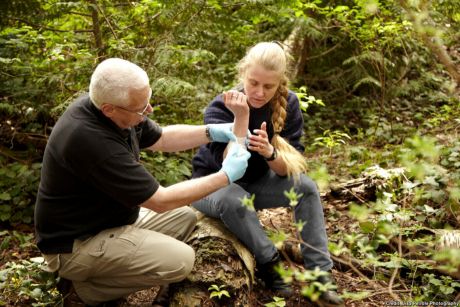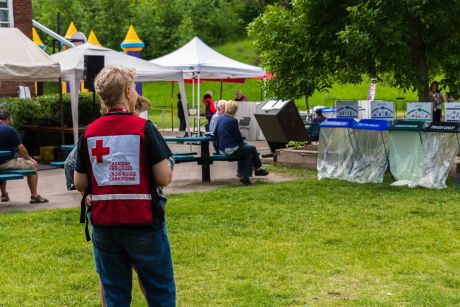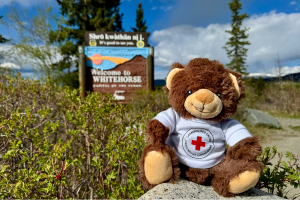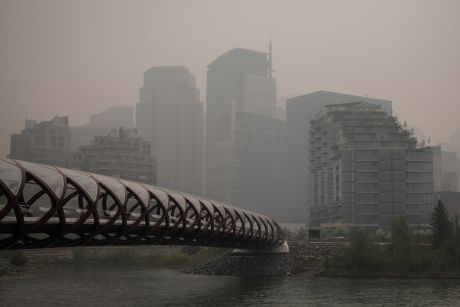Spending time outdoors is an amazing way to explore nature, challenge yourself, and create unforgettable memories. Whether you’re hiking, biking, paddling, fishing, or exploring conservation areas, adventure always comes with some risks. Knowing how to handle common outdoor injuries can make a huge difference in an emergency. Here’s a guide to help you stay safe and prepared on your next trip.
1
Latest Posts
It’s Emergency Preparedness Week, and the Canadian Red Cross is here to help support you in all your emergency preparedness needs. From showing you how to assemble an emergency preparedness kit on a budget to hosting in-person preparedness events, we’ve got you covered!
Hello, fellow furballs! I’m Coco, your wise and witty feline guide. Thunderstorms can be a real cat-astrophe, but don’t worry—I’m here to share some purr-fect tips to keep you and your humans safe. So, let’s get ready for those loud and flashy storms together!
In October 2023, the Canadian Red Cross announced a multiyear agreement in collaboration with the Government of Yukon to strengthen emergency preparedness and disaster response in the territory.
Wildfire season typically runs from early April to late October in Canada. As a result, communities across Canada are more likely to experience poor air quality due to wildfire smoke. Exposure to wildfire smoke can lead to serious health emergencies, and it’s important to know the signs, symptoms, and how to respond.
Floods can happen anywhere and at any time of the year. The key to staying safe is to prepare, have an emergency plan in place, and know the flood risk in your community. It’s also important to take time to make sure your tenant insurance covers losses from flooding.
With any emergency, ensure your family has an emergency plan and emergency kit, as well as evacuation plans. Ensuring you have food to sustain you for at least three days is part of your emergency plan and we have tips to help plan for that.
Every year people fall off ladders while hanging decorations, cut themselves while wrapping presents, and trip over electric cables or toys left on floors. There are instances of children or pets swallowing small ornaments, and even electrical shocks from holiday tree lights. So, we’ve put together 10 tips to help keep you and your loved ones safe and merry over the holidays.






